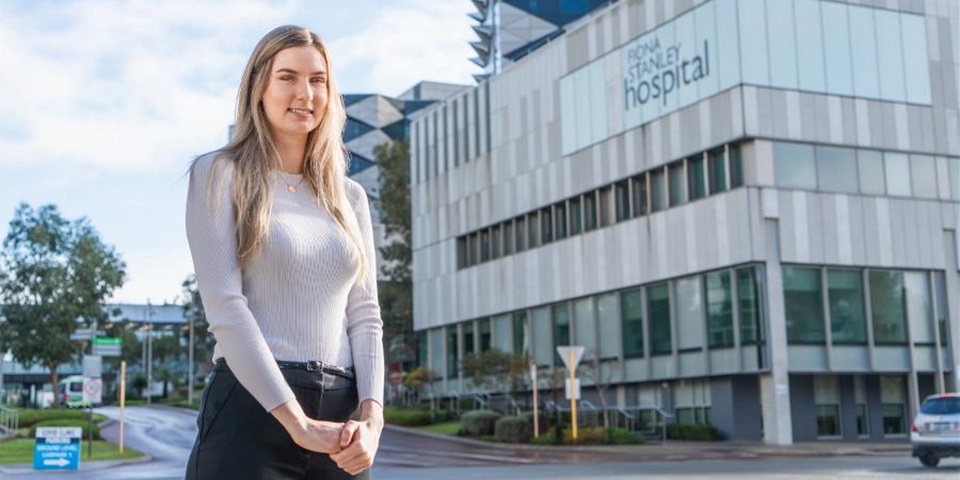News
What’s it like to study laboratory medicine?

Murdoch alumnus Babette Vogels tells us why she chose to study lab medicine, her advice for future uni students and how her work experience led to her first job.
Tell us about yourself
I grew up in the Perth Hills where I still enjoy spending time hiking and being out in nature. I also enjoy travelling, experiencing other cultures, and seeking out exciting new bars and restaurants around Perth.What got you interested in laboratory medicine?
Upon leaving high school I had no idea of what I wanted to do and set off on a different university trajectory that I later realised wasn’t right for me. I knew I was interested in science and that I wanted a fulfilling career helping people, so after learning about laboratory medicine from a friend, it sounded like the perfect career for me.Why did you choose to study at Murdoch?
I chose Murdoch University because I wanted to study in a progressive environment and obtain a degree with real-world relevance. Particularly in regard to laboratory medicine, I wanted a university with a reputation for providing hands-on experience, as having excellent practical skills is vital to the job.What I loved about studying laboratory medicine was being able to reinforce material learnt in lectures in the lab and gaining knowledge of pathological processes and all the analysis involved in their diagnosis. I also loved that different career prospects were presented to us throughout our studies, particularly careers in research. This made me evaluate my career aspirations and I ultimately decided I wanted to help people from an applied science setting.
My overall my experiences at Murdoch were really positive and although sometimes the workload could be overwhelming I always felt like I could reach out for help if I needed.
What practical experience did you do as part of your course?
In our final year we undertook Work Integrated Learning (WIL) where we spent two seven-week placements at pathology labs in disciplines of our choice. I really enjoyed my experience working outside the classroom because of the great networking opportunities and the opportunity to prepare us for working in a real diagnostic laboratory.What was your greatest achievement during your time studying at Murdoch?
My greatest achievement would definitely have to be receiving two Vice Chancellor’s Commendation for Academic Excellence awards for 2018 and 2019. It’s really nice to have that recognition from the university and have a little celebration for all my hard work.What were your career opportunities after graduation?
I was really fortunate to have been offered a laboratory assistant position at PathWest during my time on my Work Integrated Learning placement. Since graduation I have continued on at PathWest and I now work as a laboratory technician. It is thanks to the practical placements that I could show future employers my theoretical and practical skills.Within the department I work in the autoimmunity section where my roles include performing a range of assays to detect antibodies in blood, including ELISAs, immunofluorescence and radioimmunoassays, as well as checking quality control and reporting. What I love best about my work is that it’s always interesting and how fortunate I am to be working with such brilliant professionals.